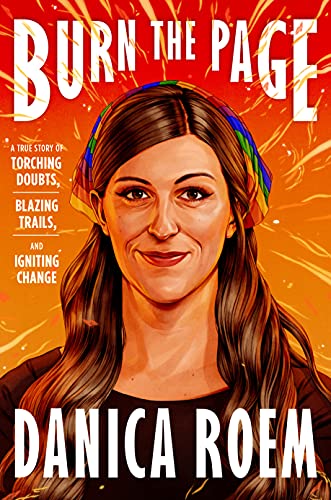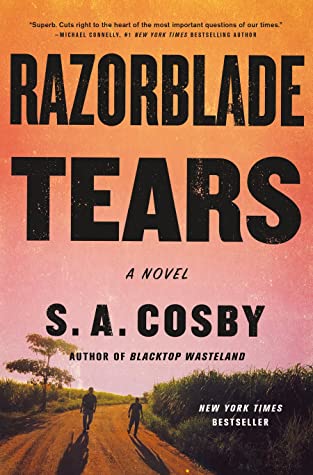
I inadvertently read two local-to-me authors last month a while ago. I didn’t plan to review these books together but I found that one informed how I thought about the other. Both explore what it means to exist outside of the cis-heteronormative identity in the South.
Though they are coming from VASTLY different perspectives.
Burn The Page by Danica Roem

Burn The Page is the memoir of 37-year-old Danica Roem, who made headlines in 2017 as the first openly transgender person elected to a state legislature. She unseated a 26-year incumbent who regularly introduced anti-LGBTQ legislation in Virginia.
Roem is a self-described extrovert who will do anything for a story so the storytelling elements in here are top-tier.
Roem builds each chapter around a piece of opposition research about herself. She digs into what you expect from a politician’s memoir; her coming out journey, local activism and her career as a local government reporter.
But she is also open about the more vulnerable aspects of her identity that came up during her campaign including her sex life and drunken exploits while fronting a heavy metal band.
The heavy metal stuff was the most fascinating to me because if there is ever a scene I would not be in– that is it. Those sections gave me serious Hunger Makes Me A Modern Girl vibes.
I feel like we’re in this interesting phase where there are more “geriatric millennial” politicians who have footprints from their early online days that are forever. Roem talks about how a friend offered to take down a raunchy music video they’d made– but then nobody could figure out how to get into the YouTube account. We didn’t have two-factor authentication in the early 2000s!
I am kind of split on the audiobook narration, which is done by Roem. I like hearing people tell their own stories but Roem’s narration is shaky and stilted at times. She also writes with a lot (and I mean a lot) of parentheticals and footnotes that may have translated better with a professional narrator.
In the epilogue, Roem shares an experience with her cousin who posted an anti-trans cartoon on Facebook. She goes on to discuss the importance of stories like hers and how what may seem like “101 courses” in progressive spaces could be eye-opening in other spaces.
I thought about these ideas as I finished Razorblade Tears by S.A. Crosby, a story about trans and gay people told from the perspective of two homophobic men.
Razorblade Tears by S.A. Crosby

When an interracial gay couple are murdered execution style, their fathers—one a Black ex-gang member, the other a white alcoholic— form an unlikely alliance and set out to get answers.
Crosby crafts a compelling narrative as the two men scour their sons’ lives for answers while fighting off the white supremacist motorcycle gang trying to stop them. This is one of the first crime novels I’ve read and I was not just prepared for the level of violence. Be warned; it’s very graphic.
This book was lauded by professional critics but is fairly polarizing in other circles for its depiction of homophobia. There is a lot of virulent on-page homophobia in this book. Our protagonists disowned their sons for being gay and the ultimate goal of the book is to have them unlearn their prejudices.
Many of the conversations and revelations the characters have sound a lot like Twitter threads. At times it did feel like basic “101 lessons” on gay rights and white privilege.
But then I started to think about the genre.
Crime fiction is a very cishet white genre. In fact, Crosby was involved in a kerfuffle where people thought Booklist was being racist by putting a Black kid on their crime issue, not realizing it was Crosby’s book cover. I started to think that the things that felt like “101 lessons” to me may not be for some of the audience reading this. It’s something I am going to think about more as I review books.
That said, this book plays heavily into Bury Your Gays and Trans Panic. The women and gay people were drawn flat and had very little agency. The book didn’t seem overtly interesting in creating a full, vibrant life for the murdered couple. It didn’t make sense that none of the couple’s found family cared to find out about their murders.
I’m honestly still not entirely sure what I think of this book.
Author’s Note
Razorblade Tears is partially set near where I live and the accuracy was eerie!
I’m a lifelong reader who started blogging about YA books in 2011 but now I read in just about every genre! I love YA coming of age stories, compelling memoirs and genre bending SFF. You can find me talking all things romance at Romance and Sensibility.